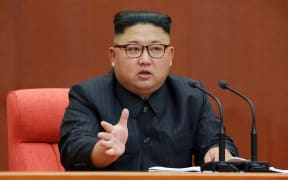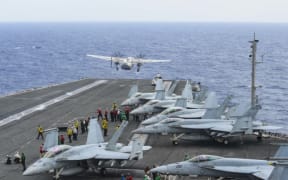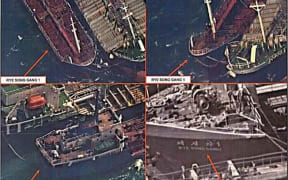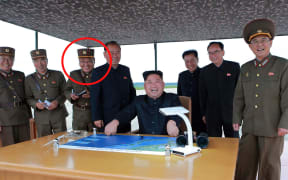South Korea has offered high level talks with North Korea on 9 January to discuss its possible participation in the 2018 Winter Olympic Games.
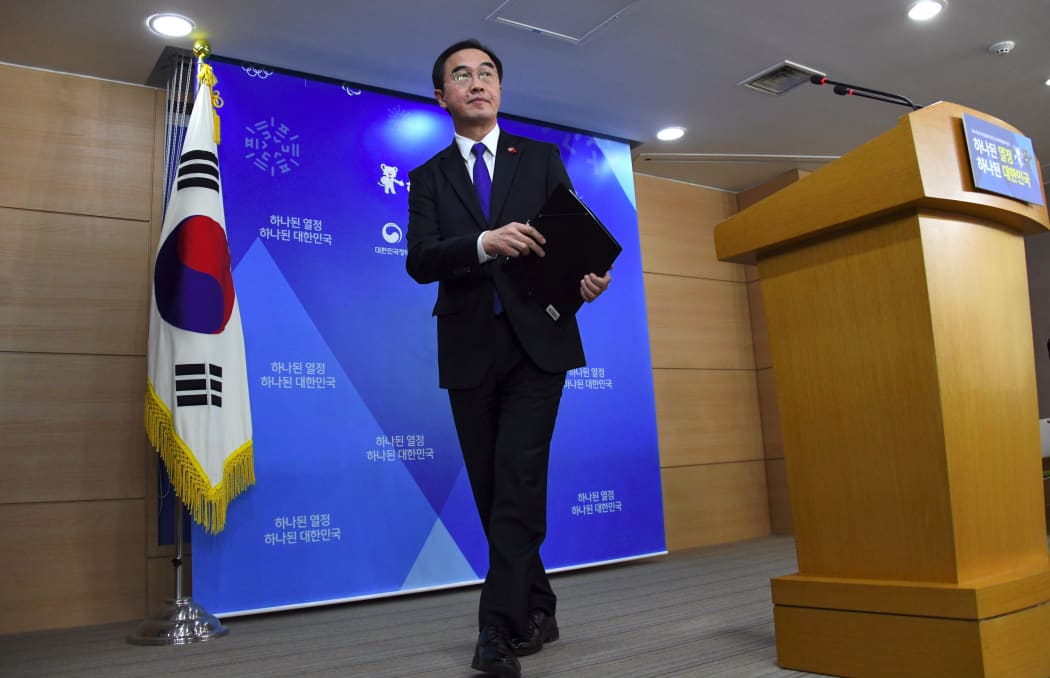
South Korean Unification Minister Cho Myoung-Gyon leaves after a press conference at a government complex in Seoul on January 2 after announcing proposed talks with the North. Photo: AFP
South Korean Unification Minister Cho Myoung-gyon proposed on Tuesday that representatives could meet at Panmunjom, the so-called "truce village".
"We hope that the South and North can sit face to face and discuss the participation of the North Korean delegation at the Pyeongchang Games as well as other issues of mutual interest for the improvement of inter-Korean ties," said Mr Cho.
"I repeat, the government is open to talking with North Korea, regardless of time, location and form."
It is not yet known who would be attending the proposed talks on 9 January, and North Korea has yet to respond.
South Korean President Moon Jae-in said earlier today that inter-Korean relations were linked to resolving the North's nuclear program.
"The improvement of relations between North and South Korea cannot go separately with resolving North Korea's nuclear program, so the foreign ministry should coordinate closely with allies and the international community regarding this," he said in opening remarks at a cabinet meeting.
Mr Moon took office last May pledging to engage Pyongyang in dialogue but North Korea snubbed his overtures, including an offer to hold inter-Korean military talks about ceasing hostile activities along the border, as it tested missiles at an unprecedented pace.
However, Mr Kim in his New Year speech offered an olive branch to South Korea, saying he was "open to dialogue" with Seoul.
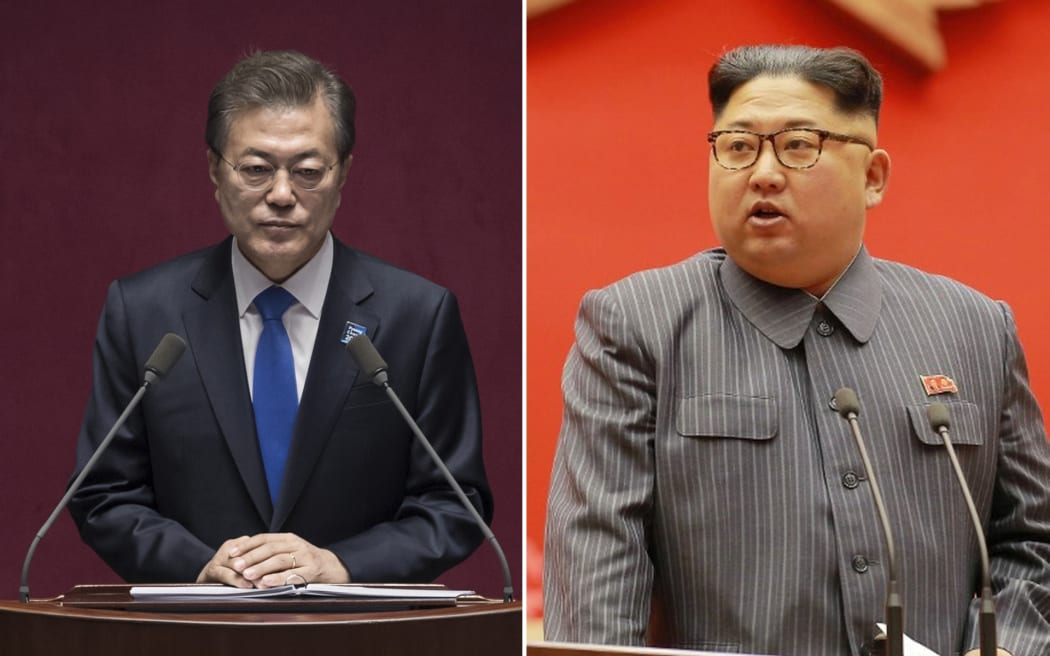
South Korean president Moon Jae In, and North Korean leader Kim Jong Un. Photo: AFP
At the same time, he warned the United States he had a "nuclear button" on his desk ready for use if North Korea was threatened.
"When it comes to North-South relations, we should lower the military tensions on the Korean Peninsula to create a peaceful environment," Mr Kim said. "Both the North and the South should make efforts."
Mr Kim said that rather than encouraging US measures that "threaten the security and peace of the Korean peninsula," Seoul should instead respond to overtures from the North, and "stop nuclear war exercises with foreign forces."
The last high-level talks took place in December 2015 in the Kaesong joint industrial zone.
They ended without any agreement and the meeting's agenda was not made public.
North Korea has in the past two years quickly advanced its nuclear and convention weapons programme, despite increasing international sanctions.
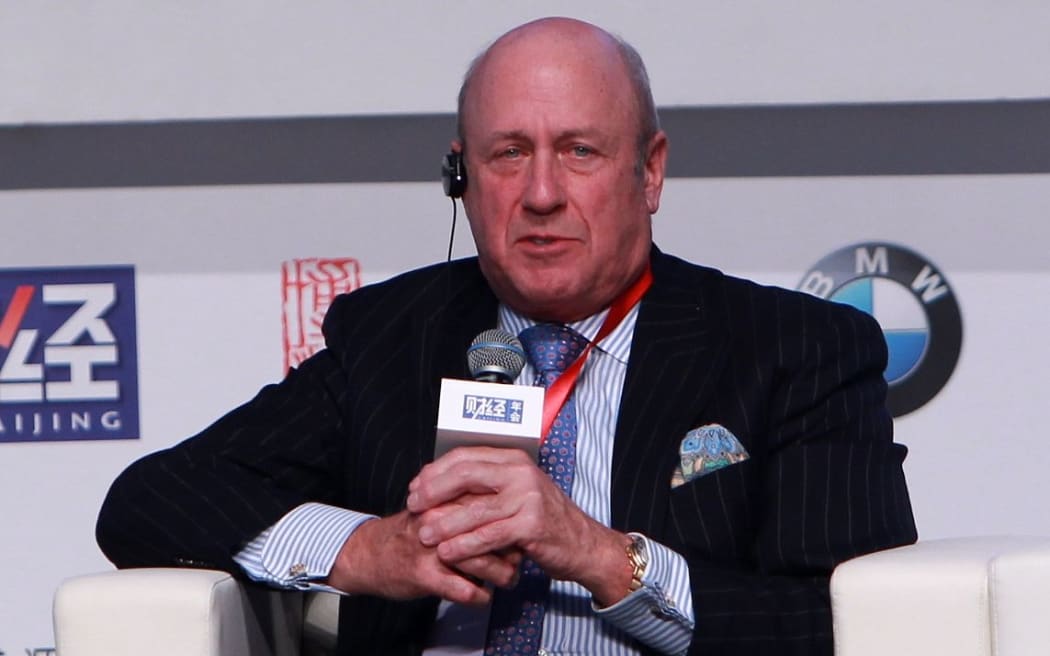
Carnegie Endowment for International Peace vice president for studies Douglas Paal spoke at the Caijing Annual Conference 2014 in Beijing in November. Photo: Che liang - Imaginechina
Kim speech targets US-South Korea relationship - US analysts
US-based experts saw Kim's speech as a clear attempt to divide Seoul from its main ally, Washington, which has led an international campaign to pressure North Korea through sanctions to give up weapons programs aimed at developing nuclear missiles capable of hitting the United States.
"This speech pokes at the fissure that has lain below the surface in US-South Korean relations, and seems designed to drive a wedge there," said Douglas Paal, a former senior US diplomat who heads the Asia program at Washington's Carnegie Endowment for International Peace.
"President Moon needs a successful Olympics and the US drive to increase pressure fits poorly with the Southern agenda."
Evans Revere, another former senior US diplomat who took part in unofficial talks with North Korean officials last year, said Pyongyang would likely try to extract concessions as a price for Olympics participation.
"It's hard to imagine Seoul falling for this," he said, adding that Seoul and Washington had so far stayed in synch in the pressure and isolation campaign.
Mr Revere said Mr Kim's speech contained the strongest defense yet of North Korea's status as a permanently nuclear-armed country.
"Implicit in Kim Jong Un's speech is a willingness to engage with others, including the United States, on the basis of their acceptance of the 'reality' of North Korea's permanent nuclear status. That's not a basis on which the United States is prepared to engage," he said.
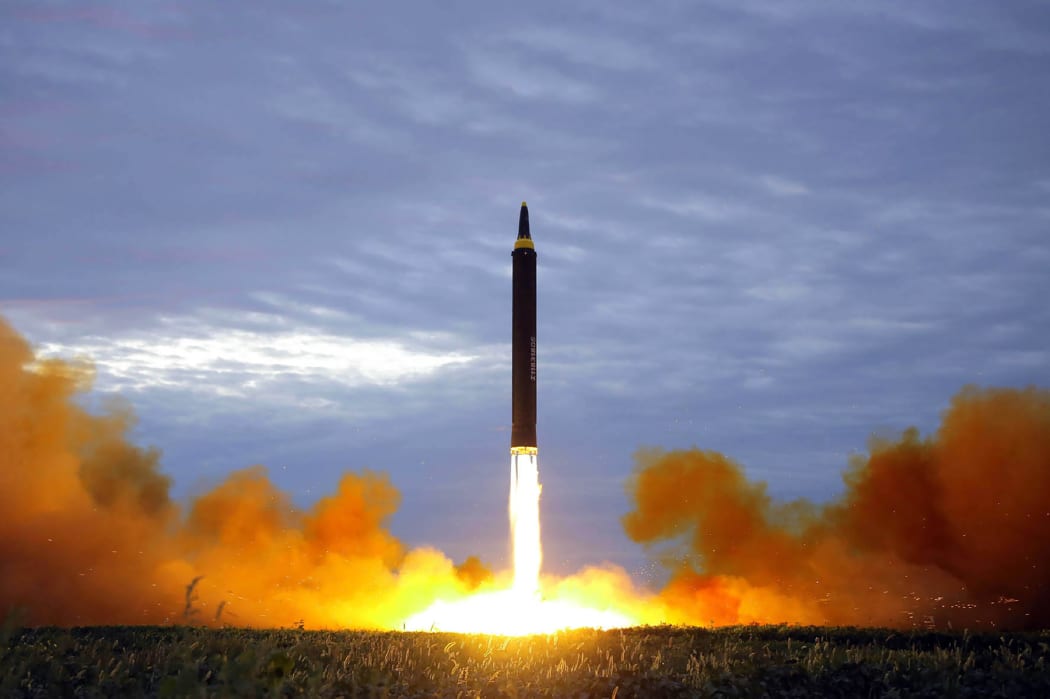
This picture from North Korea's KCNA - taken on 29 August and released on 30 August - reportedly shows the Hwasong-12 lifting off from an undisclosed location near Pyongyang. Photo: AFP / KCNA via KNS
'Reality, not a threat'
North Korea conducted its sixth, and most powerful, nuclear test in September in defiance of international sanctions, raising fears of a new conflict on the Korean peninsula.
After North Korea tested its most powerful intercontinental ballistic missile (ICBM) in November, which it said was capable of delivering a warhead to anywhere in the United States, Mr Kim declared his nuclear force complete.
He continued that theme in his New Year's address, announcing that North Korea would focus in 2018 on "mass-producing nuclear warheads and ballistic missiles for operational deployment".
That, Mr Kim said, was "irreversible with any force", making it impossible for the United States to start a war against North Korea.
"The whole territory of the US is within the range of our nuclear strike and a nuclear button is always on the desk of my office and this is just a reality, not a threat," he said, while emphasising that the weapons would only be used if North Korea was threatened.
Mr Kim's customary New Years' speech is closely watched for indications of the policy direction the unpredictable and reclusive leader is likely to pursue in the coming year.
Daniel Russel, the top US diplomat for East Asia until last April and now at the Asia Society Policy Institute, said there was an argument to be made to encourage North Korea's Olympic participation but that it should not be taken too far.
"It's perfectly legitimate to dial down some of the signaling and the rhetoric ... but not to load up their tray with concessions in advance. We should reward responsible behavior, but not try to bribe North Korea into behaving; that doesn't work," he said.
Nam Sung-wook, a North Korea expert at Korea University in Seoul said Mr Kim was likely to tone down his weapons testing - at least ahead of the Olympics.
"What North Korea is most afraid of is being forgotten in the international arena," he said. "Without launching missiles and conducting a nuclear test, North Korea will be in the spotlight just by attending the Winter Olympics."
Harry Kazianis, director of defense studies at Washington's conservative Center for the National Interest, said that if North Korea did participate in the Olympics, there could be a lull in tensions, but only a brief one.
"As we move into the spring, Pyongyang will once again test all different types of missiles and weapons," he said.
- Reuters / BBC
